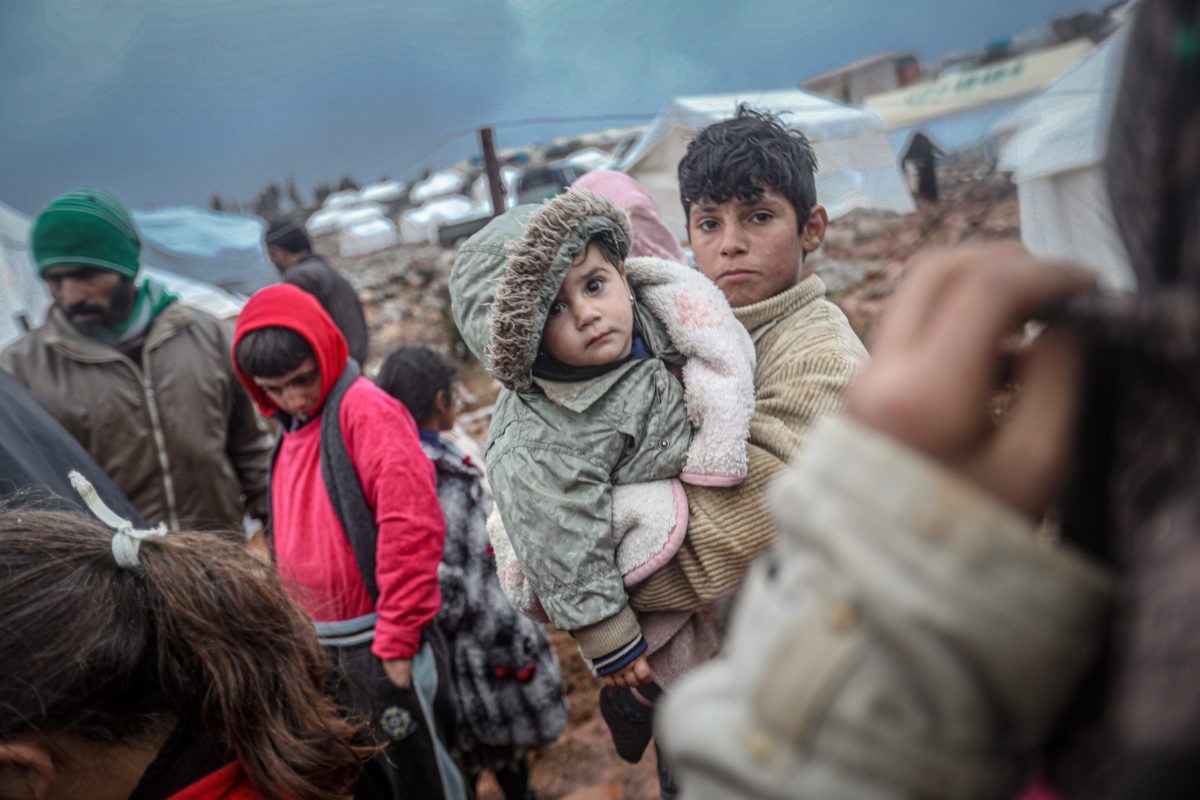[ad_1]
An unusual photograph continues to make the rounds on the part of social media obsessed with the Syrian conflict. It’s a photo of Abu Muhammad al-Jolani, the head of Hayat Tahrir al-Sham, the militant group and former al-Qaeda affiliate that controls Idlib, the last Syrian rebel province not in government hands.
In the photo, Jolani is standing next to an American reporter, but it is his clothes that draw the most attention: Instead of the usual military fatigues and Islamic prayer cap he usually wears, Jolani is dressed in a suit – the first time most of his supporters have ever seen him like that. Social media are bubbling with speculation that Jolani is rebranding himself as Western-friendly.
Abu Muhammad al-Jolani is, lest anyone forgets, one of the world’s most wanted terrorists. The United States is offering a $10 million bounty for his capture; as a comparison, there is only one person with a higher price on his head, and that is Ayman al-Zawahiri, the head of al-Qaeda.
And yet this rebranding of Jolani as a political figure is not a recent thing; it has been taking place since last summer. In HTS media, Jolani has adopted the persona of a politician, visiting the sick in hospital, ladling soup to the hungry and listening attentively to journalists’ questions in interviews.
The rebranding of Jolani is about more than an item of clothing or the affiliations of one militant group. It suggests something more significant about the future direction of the Syrian conflict. The parameters of a “cold peace†in Syria are becoming clearer.
Ostensibly, the regime of President Bashar al-Assad and its Russian backers want to take control of Idlib and bring the 3 million people there back under its control. But Turkey too, which controls areas surrounding Idlib, has an interest in defending at least parts of Idlib from the regime, and has troops on the ground inside the province.
Yet the costs of retaking the province may simply be too high. A three-way fight among Damascus, backed by Russian fighter jets, Turkey, and militant groups like HTS would be devastating, and send – at least – hundreds of thousands of refugees into Turkish areas and further into Europe. It may simply be that no one outside Idlib has the appetite for a fight.
In the absence of a government takeover or Turkish tutelage, Jolani and HTS therefore emerge as the best candidates to “stabilize†Idlib and govern it. That seems far-fetched today; but one day soon it may not.
It is not inconceivable that Turkey may acquiesce to this in time. Nor is it unimaginable that Russia (which is used to using strongmen leaders in places like Chechnya) might accept such a situation.
The US position is more complicated, because of the bounty and the fact that HTS has attacked civilians, but on the shifting terrain of the Syrian civil war, many accommodations are possible.
Opinion already is shifting. Just this month, a mainstream think-tank, the International Crisis Group, released a report that argued that “HTS’s continued status as a ‘terrorist’ organization presents a major obstacle…. There is an urgent need for creative ideas for how to sustain the fragile calm, including by directly addressing the question of HTS’s status.â€
Indeed, HTS, unlike other jihadi groups, has proved itself remarkably flexible. As far back as 2017, HTS reached an accommodation with Turkey – which it still, by the way, considers an “infidel†state – to allow Turkish troops into Idlib province.
Since then, it has extended cooperation with the country, especially over “safe zones†on either side of a pivotal highway that bisects the province. HTS also appears to be holding back other, smaller militant groups from attacking the Syrian government.
In fact, a better way to think of what is happening with Idlib is to imagine an alternative: Which army might displace Jolani’s? And what might that army then do with the 3 million residents, included among them the most implacable of the Assad regime’s opponents?
Recall that it is to Idlib that the majority of Syrian rebels retreated. Phrased like that, it seems obvious that neither Turkey nor the Syrian government has any interest in retaking the whole of Idlib.
The government doesn’t want its committed enemies within its borders. It already controls around 70% of the country and, although it is difficult to be sure, taking into account the nearly 7 million Syrians displaced abroad, at least the same percentage of the population.
The vast majority of Syrians, therefore, live under government control, including in all the major cities. From its perspective, better to let the rest starve abroad, trickle back over years and let the recalcitrant rebels languish under HTS.
Turkey has had enough problems with Syrian refugees; it certainly doesn’t want any more, and definitely not those with extensive combat experience now holed up in Idlib. As a recent New York Times report highlighted, Turkish troops are currently guarding 5 million Syrian civilians; Ankara does not have the appetite to guard 3 million more.
A problematic man in a suit might just be the answer. It is both astonishing and horrifying that the Syrian civil war has degenerated to such a point where a militant group that has killed and displaced civilians, demolished homes and carried out public executions might soon be hailed as a “stabilizing†force.
And that’s the shocking part: not that an American took a photo with a terrorist in a suit, but how many more may be willing to stand beside Jolani and do just that in the coming years.
This article was provided by Syndication Bureau, which holds copyright.
Faisal Al Yafai is currently writing a book on the Middle East and is a frequent commentator on international TV news networks. He has worked for news outlets such as The Guardian and the BBC, and reported on the Middle East, Eastern Europe, Asia and Africa.
[ad_2]
Source link














